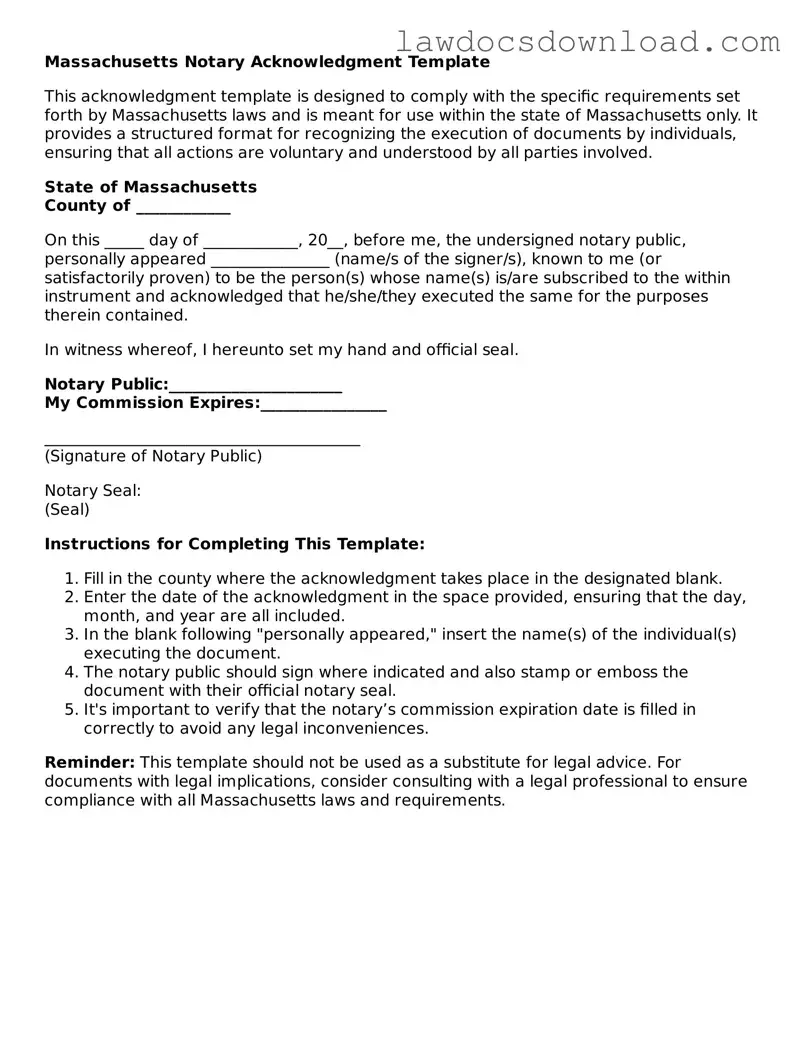Legal Massachusetts Notary Acknowledgement Form
The Massachusetts Notary Acknowledgement form is a critical document where a notary public affirms that a signatory has willingly and knowingly signed a document in their presence. This serves as an official verification, crucial for the document's legal standing and authenticity. Through this form, the integrity of the signing process is upheld, ensuring confidence and trust in the legality of the document involved.
Launch Notary Acknowledgement Editor Here

Legal Massachusetts Notary Acknowledgement Form
Launch Notary Acknowledgement Editor Here

Launch Notary Acknowledgement Editor Here
or
Free Notary Acknowledgement
Get this form done in minutes
Complete your Notary Acknowledgement online and download the final PDF.